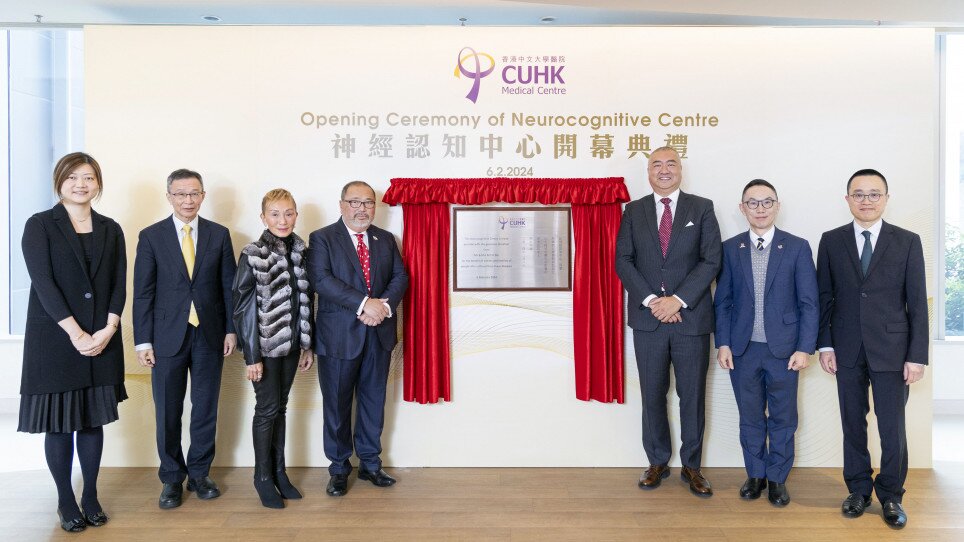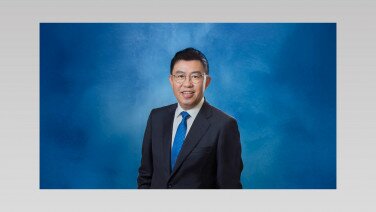Press Releases
06Feb 2024
Opening Ceremony of CUHKMC Neurocognitive Centre; Establishment of Neurocognitive Registry Drives Momentum in Medical Research
CUHK Medical Centre (CUHKMC) established a Neurocognitive Centre with the generous donation from Mr. and Mrs. Maximilian MA to provide early detection and treatment to people affected by related diseases. A Neurocognitive Registry is set up to propel medical research in this aspect.
The Neurocognitive Centre is a major part of CUHKMC Clinical Neuroscience Centre (CNC), where CNC is established to provide multi-disciplinary and one-stop neurology and neurosurgery care by consolidating outpatient and inpatient service at CUHKMC, in view of increasing medical needs on dementia, stroke or neurological impairment. Two major service scopes of the CNC include early detection of dementia and rehabilitation on neurodegenerative diseases (e.g. Parkinson’s disease and stroke).
Regarding detection of dementia, the CNC has deployed cutting-edge technology, in particular the high-sensitivity Single Molecule Array digital equipment. It identifies specific biomarkers from blood sample and allows early detection of dementia patients. Furthermore, the CNC can leverage AI-powered AccuBrain to better analyse MRI images and identify dementia patients at an early stage. While on rehabilitation, Transcranial Magnetic Stimulation (TMS), Robotics, Exoskeleton and Virtual Reality (VR) technologies are used to facilitate patients’ rehabilitative exercise and training.
The Division of Neurology at the Department of Medicine & Therapeutics of CUHK Faculty of Medicine, together with The Charles K. Kao Foundation for Alzheimer’s Disease, previously launched a free Alzheimer’s disease (AD) screening and assessment service, “Charles Kao CUHK BEAT AD Service” (The BEAT AD), for Hong Kong residents. In light of this, the CNC at CUHKMC joins forces with them to establish a “Neurocognitive Registry”. The initiative is poised to advance medical research on dementia and AD. The BEAT AD involves the use of AI-assisted retinal imaging screening for early AD and provision of tailor-made advice on prevention of AD. Follow-up cases screened by the BEAT AD project will be referred to CUHKMC for further subsidised diagnosis and treatment. CUHKMC aims to identify AD patients at an early stage through advanced neuro-diagnosis and multi-disciplinary intervention programme.
Dr. Hong FUNG, Chief Executive Officer of CUHKMC, said, “CUHKMC has earlier established the Clinical Neuroscience Centre (CNC). We are grateful for Mr. and Mrs. Maximilian MA’s generous support, which has made it possible for us to establish the Neurocognitive Centre inside the CNC to treat patients with advanced facilities and equipment. Early prevention, detection and intervention can delay the onset of cognitive problems, especially dementia. Thus, we have joined hands with CUHK and The Charles K. Kao Foundation for Alzheimer’s Disease to establish the ‘Neurocognitive Registry’ to collect clinical data for research purposes, in the hope of achieving breakthroughs in neurocognitive disorder treatment.”
















